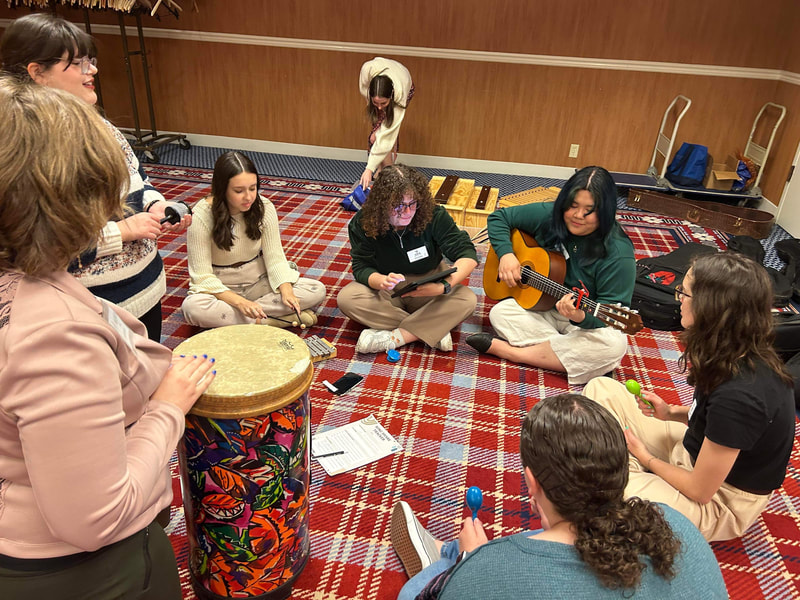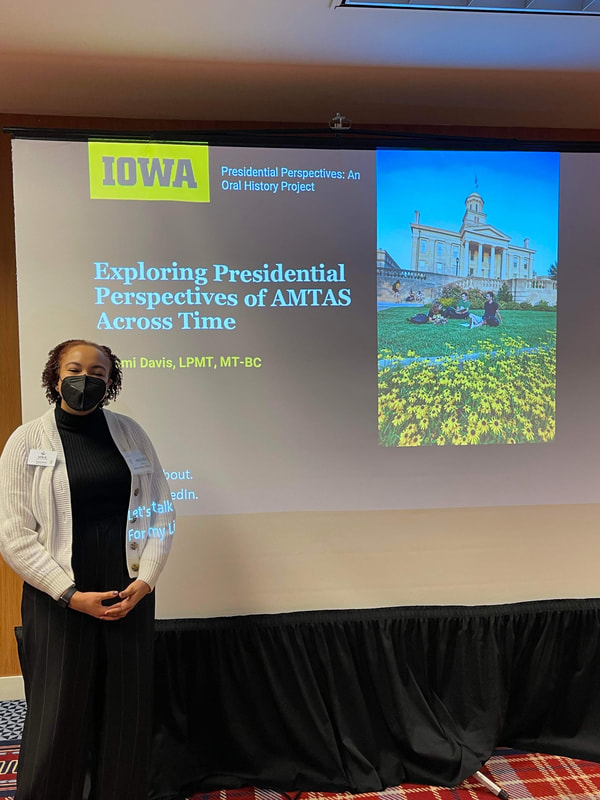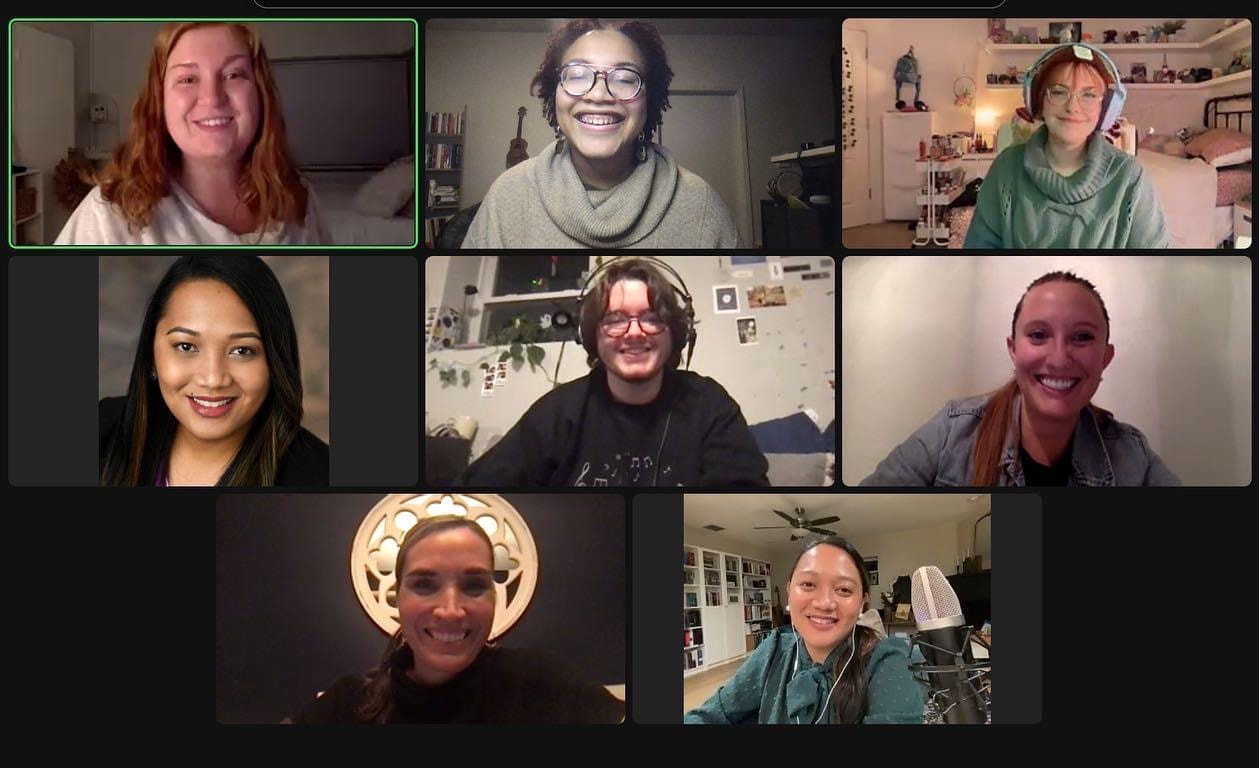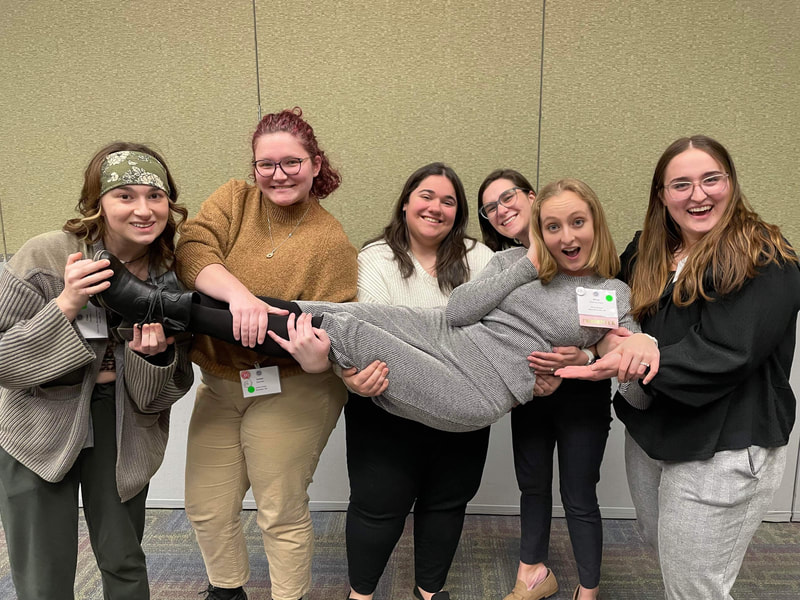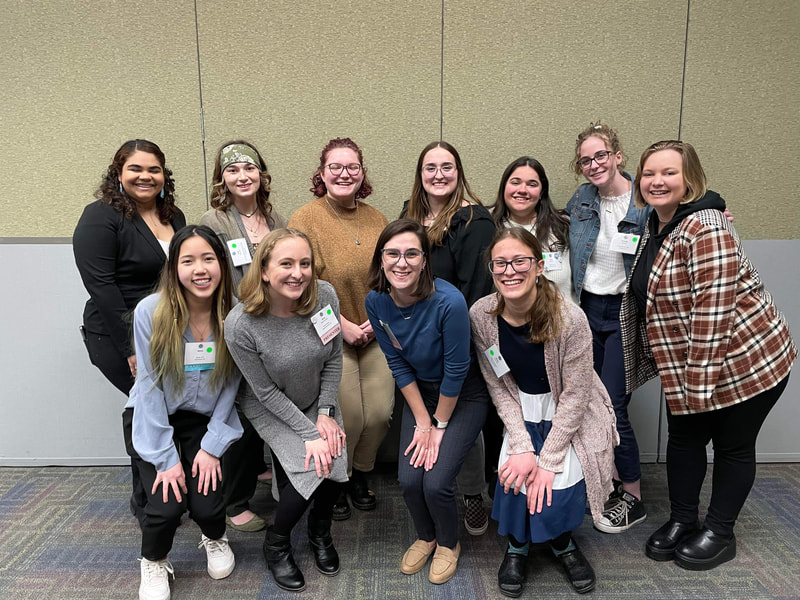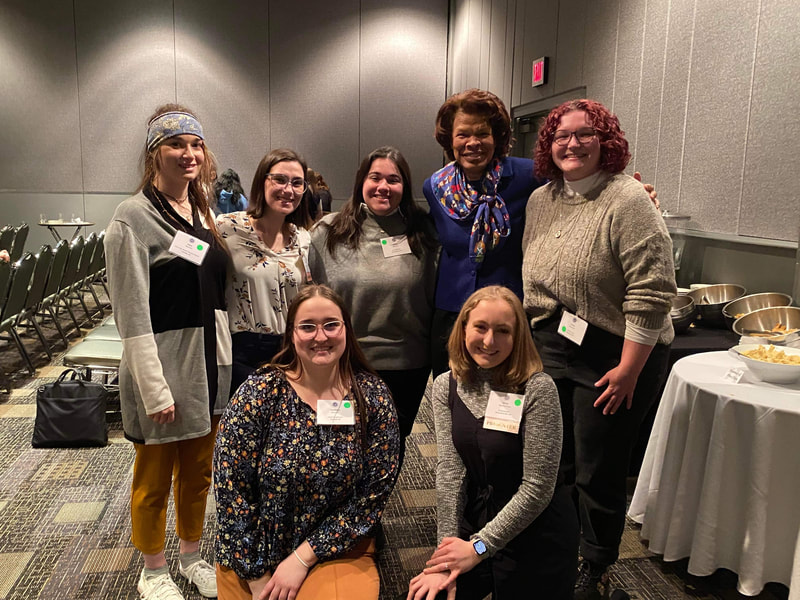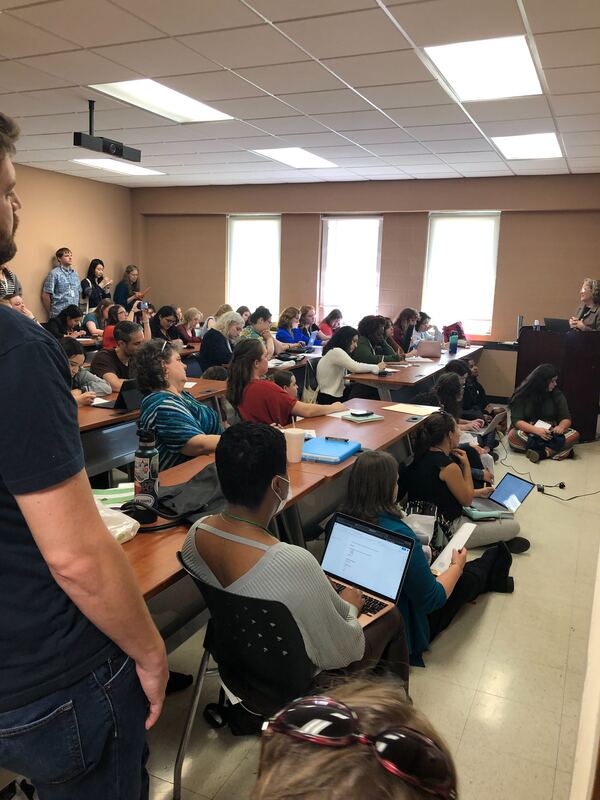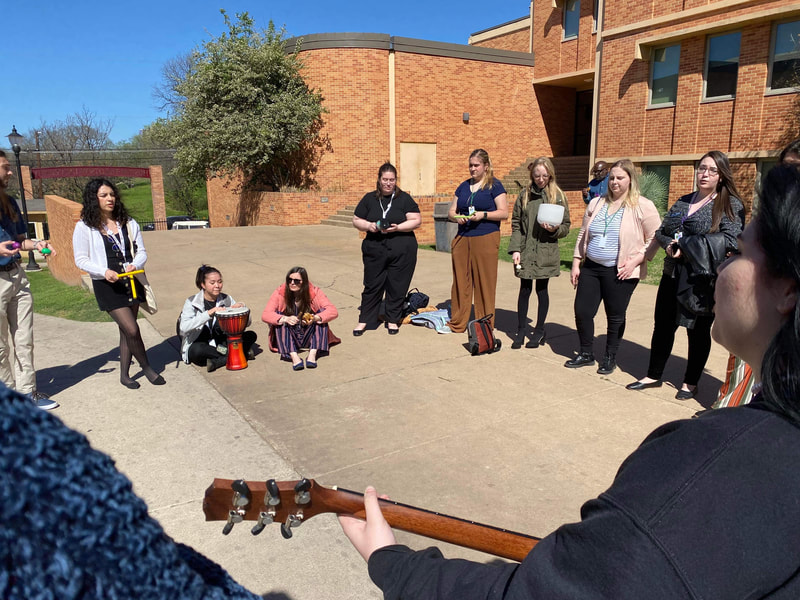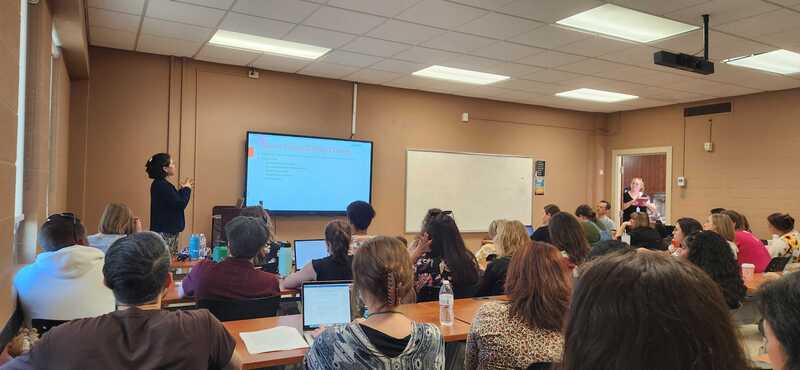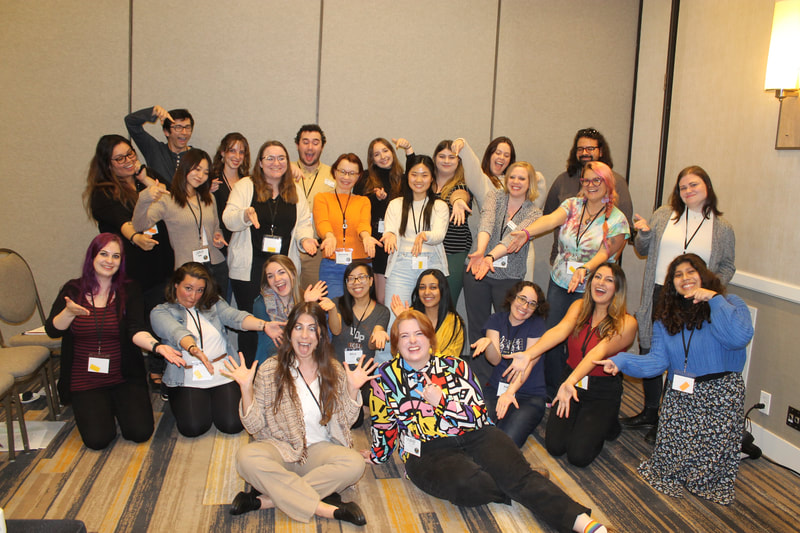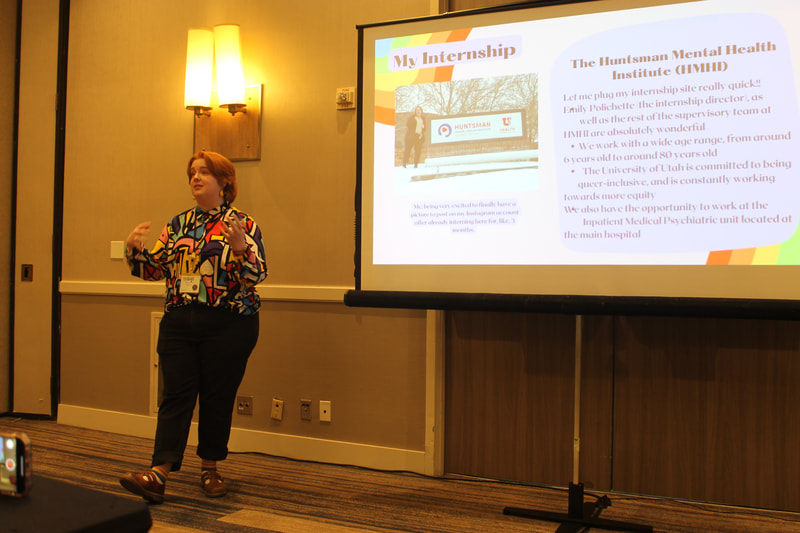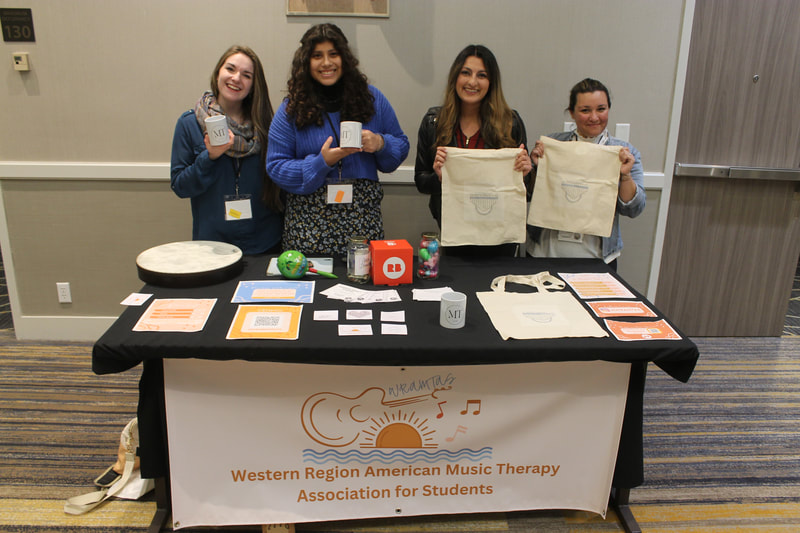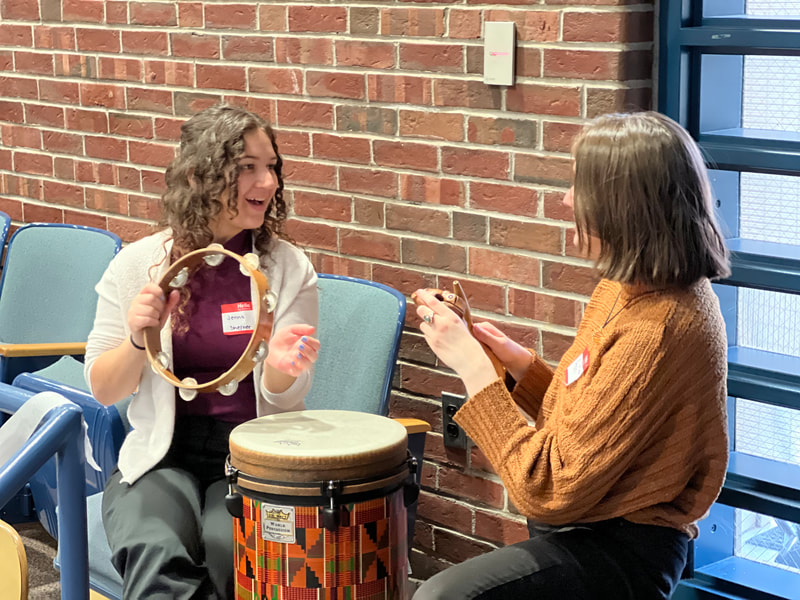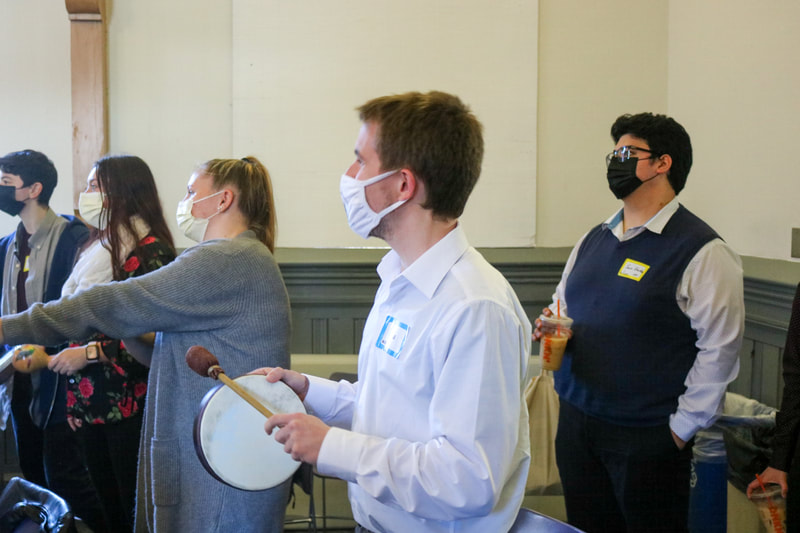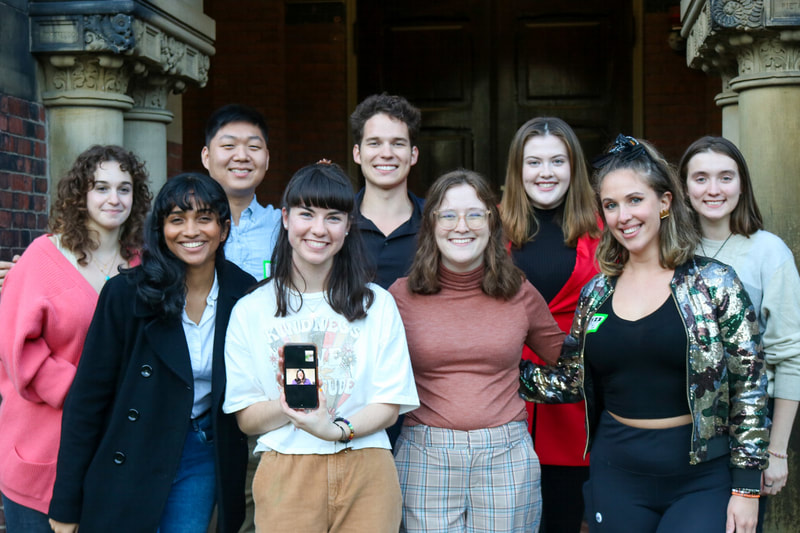|
Written by Tess Vreeland, MT-BC, AMTAS Secretary
This week, we are beginning a blog series called “Research Highlights” where students and professionals are invited to promote research in specialized fields or types of music therapy practice! This week is focused on how music therapy can be beneficial to people with cochlear implants and types of interventions that may be used based on the individual’s goals. If you are interested in submitting a research blog or want to see a blog written on a specific topic, please fill out our Blog Interest Form or reach out to [email protected]! Deafness and hearing loss can occur at any stage of life, and the choice to use assistive devices or not is determined by the individual’s needs and preferences. Cochlear implants are a type of assistive device for people with profound sensorineural hearing loss. Implantation requires surgery, and the device works by sending electrodes to stimulate the auditory nerve rather than a traditional amplification of a hearing aid (Gfeller, 2001). It is a common misconception that people who receive cochlear implants do not benefit from music therapy due to the possibility of distortion of sound quality through the device. However, the multisensory nature of music therapy can be beneficial to both pre-lingual and post-lingual recipients. Music therapists can also work collaboratively with speech-language pathologists, audiologists, and other professionals to achieve various goals. Children who are pre-lingual recipients of CIs primarily focus on the goals of listening skills, speech production, and language development through movement, singing, and instrument play interventions with a music therapist (Gfeller et al., 2011). Within each type of intervention, considerations should be made to best facilitate the goals presented. Music therapists should use distinctly different instrument timbres to help with sound discrimination and listening objectives. The repetition within developmentally appropriate songs for children is beneficial to speech production and language development goals (Gfeller et al., 2011). Using musical cues to facilitate movement creates a multisensory approach that simultaneously promotes listening skills and motor-related goals. With this population, the integration of “musical elements (e.g., singing) and multisensory cues (e.g., visual and kinesthetic cues) may provide contextual cues for young children to attend to the presented auditory information more accurately” (Kim et al., 2016, p. 55). These strategies should also be applied when addressing development goals appropriate to children at this age and developmental level, regardless of hearing associated goals. Though pre-lingual implantation is popular among recipients, adults can also make the informed decision to receive cochlear implants at any point in life as an assistive tool. Prosody, the patterns of inflection in spoken language, can be addressed using music because of the linguistic correlation between music and speech (Hutter et al., 2015). While the goals of improving listening and speech skills are still relevant to post-lingual CI recipients, the social-emotional goal domain associated with hearing loss is also commonly addressed with adults in music therapy sessions. Difficulty with speech comprehension can impact socialization with others when other forms of communication are not being utilized, which can have an impact on self-esteem in social settings (Magele et al., 2022). The post-implant transition can bring frustration with the learning curve and new perception of sounds. Music therapists can address both types of goals simultaneously with intentional interventions with a multisensory approach. Music perception and appreciation can also be included as goals for adults with cochlear implants; however, the importance of this goal should be left up to the individual because music is valued differently between each person. Typically, those who benefit from interventions focused on these goals are “post linguistically-deafened adults who embrace the cultural values of hearing people, even after many years of deafness” (Gfeller, 2001, p. 91). It is important to acknowledge that many musical qualities are not transmitted well through cochlear implants, so certain musical aspects should be taken into account to best accommodate the listener’s experience. Using familiar music with more simple structures supports the client in maintaining their attention throughout interventions and connecting previous experiences with the perceived sounds. Music therapy can be a helpful tool for cochlear implant recipients across the lifespan, with specified objectives to best serve the individual’s needs. References Gfeller, K. (2001). Aural rehabilitation of music listening for adult cochlear implant recipients: Addressing learner characteristics. Music Therapy Perspectives, 19(2), 88–95. https://doi.org/10.1093/mtp/19.2.88. Gfeller, K., Driscoll, V., Kenworthy, M., & Voorst Van, T. (2011). Music therapy for preschool cochlear implant recipients. Music Therapy Perspectives, 29(1), 39–49. https://doi.org/10.1093/mtp/29.1.39. Hutter, E., Argstatter, H., Grapp, M., & Plinkert, P. K. (2015). Music therapy as specific and complementary training for adults after cochlear implantation: A pilot study. Cochlear Implants International, 16(3). https://doi.org/10.1179/1467010015z.000000000261. Kim, S. J., Kim, E. Y., & Yoo, G. E. (2016). Music perception training for pediatric cochlear implant recipients ages 3 to 5 Years: A pilot study. Music Therapy Perspectives, 35(1), 50–57. https://doi.org/10.1093/mtp/miw009. Magele, A., Wirthner, B., Schoerg, P., Ploder, M., & Sprinzl, G. M. (2022). Improved music perception after music therapy following cochlear implantation in the elderly population. Journal of Personalized Medicine, 12(3), 443. https://doi.org/10.3390/jpm12030443.
0 Comments
Music therapy students across America have been hard at work furthering the goals of the profession! This blog provides regional updates following the regional conferences, as well as an overview of what the AMTAS board is working on. Stay tuned for more updates and blog posts about various music therapy topics written by AMTA students! Regional Updates 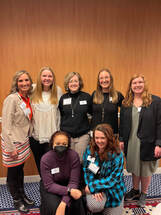 Midwestern Region The Midwestern region has been working towards creating scholarship funds for more students by coordinating various fundraisers virtually and in-person throughout the year. Some of these fundraisers included a virtual songwriting competition where students could share their original content and a virtual merchandise storefront. Other in-person fundraising efforts included raffles and networking events to raise money for students to receive scholarships. These projects allowed for three students to receive scholarships in this region! Besides fundraising efforts, the MWRAMTAS board held their conference in late March. At this conference, students presented on various topics in the Passages Conference. The high attendance rates and student presenters were inspired by the executive board’s project preceding the conference that outlined the process of fully participating in regional student conferences. More updates about the Midwestern Region can be found at https://mwramtas.org/stay-conneted! Mid-Atlantic Region The students of the Mid-Atlantic region have been working hard to advocate for music therapy, connect students across the region, and give back to the community through projects and fundraisers! Various universities in this region held philanthropic events benefitting different people in their communities such as veteran associations, local schools, and children’s hospitals. In addition to fundraisers at individual universities, the region is united in a t-shirt design contest fundraiser to benefit Healing Sounds located in Virginia! This year’s MARAMTAS Passages was held in February with the theme “Back to Basics.” Presentations included a keynote presentation by Dr. Rebecca J. Warren, ``Narrative and Literature Review on Living with Invisible Disabilities.: A thesis" with Mykalia Reiter, “Music Therapy and Consistency: Building Safety and Stability for Children in Foster Care” with Anne McGoldrick, “Music Therapy and Children with Mental, Emotional, Behavioral, and Developmental Problems” with Madison Howell, "The Clinical Use of Music Therapy at the End of Life" with Elise Kohler, an Internship Fair, and “Self Care for the Music Therapist” with Dane Wagner. The MARAMTA conference was held in New York in early March, and Nazareth College and SUNY Fredonia held mini-conferences in their areas. The hard work of students did not go unnoticed as the MARAMTAS board was able to award scholarships and recognition to many individuals this year. Music therapy club awards were presented to SUNY Fredonia and Marywood University, and chapter representative awards were presented to Eliza Shriver and Lizvette Pappaterra for their outstanding work within the region. The Jenny Shin Memorial Scholarships were awarded to Eliza Shriver and Mikella Wisler, a student scholarship was awarded to Nadya Dereskavich, and membership scholarships were awarded to D'Ambra Galvin and Madeleine Berkle. Student involvement was another highlight for this region this year with 8 schools participating in a “Swap Shop” about instrumental tips and tricks, as well as the creation of a Student Conference Planning Chair position and Diversity and Inclusion committee. More updates can be found at https://maramts.weebly.com/ or @mar_amts on Twitter and Instagram! Great Lakes Region The Great Lakes region has focused on rebuilding connections between students following the pandemic through their focus on virtual events, the promotion of wellness, and their Student Passages topic of “Rebuilding Through Resilience.” Their regional project titled “The Wellness Endeavor” focused on financial, social, emotional, vocational, intellectual, and academic wellness. Financial wellness was promoted through 6 different scholarships awarded to students and 1 awarded to a university at the regional conference held in mid-March in Indiana! Vocational and intellectual wellness were promoted through presentations and panels held at the conference which included the following: “Assistive Communication Device Technology: Ethics and Possibilities with Non-Speaking Clients” by Amanda Bursch, “Piloting Your Future: Get a HeadStart on Creating a New Program” by Hannah Hunziker & Alexis Pelt, “Countertransference in the Wild” by Ariel Contreras, “Relationship Exploration Through Music: Treatment Considerations for Adolescents with Attachment Challenges” by Jaylee Sowders, and Keynote Speaker, Dr. Deforia Lane. Social media efforts were made to promote social and emotional wellness through mindfulness initiatives and virtual “connection hours” for students throughout the year. To see the wellness initiatives and other updates from this region, visit http://glramtas.weebly.com , follow @glramtas on Instagram, or Great Lakes Region American Music Therapy Association Students on Facebook! Southwestern Region The Southwestern region has worked hard to strengthen their organization to promote connectivity among students in the region! The highlight of their year was the return of an in-person conference in early March in Texas where students could reconnect, student business could be conducted, and Passages could be held. At Passages this year, more than 9 internship directors were invited to discuss their requirements and general information followed by a Q & A session. Students were active at the conference in a SWAMTAS jam session, as well as the business meetings in which a new social media chair position was created. At this conference, a Lifetime Leadership award was presented to Dr. Edward Khaler! SWAMTAS also opened applications for scholarships for students entering internship to facilitate the transition. While individual universities in this region continue to work towards individual projects, the regional executive board hopes to communicate student achievements through a quarterly newsletter to celebrate the hard work of students in the Southwest region. More updates can be found by visiting https://swamta.wildapricot.org! Southeastern Region The Southeastern region focused on expanding student involvement at the SER-AMTA conference by providing educational and scholarship opportunities to promote student involvement. Two scholarships were awarded to fund student conference registration in the region, and door prizes were provided for students attending in person. Rachel Ford, the outgoing SER-AMTAS president provided a recap of the conference experience below. More updates can be found at https://seramtas.weebly.com or @ser_amtas on Instagram! “The Southeast Region had an amazing conference in Chattanooga, Tennessee on March 23rd-25th. It was a wonderful experience for students, interns, and professionals to gather together again in person, while also online options were provided. Because our region is so large, with 19 schools spread across the southeast, conferences are a great time to learn about the education at other universities, and allow yourself to learn new things from other professionals that you may not have heard or experienced in your state. For student passages this year, our theme was formed around the idea of learning from others: Taking Charge of Your Education. As a board featuring students from 4 different universities, we wanted to create a space where students had the opportunity to share their experiences as well as voice their opinions on needs they have that aren’t being met. It was an amazing and powerful experience to see so many music therapy students, from different backgrounds and identities, all come together and be supportive, safe spaces for others. We also had two students from FSU that gave a presentation on research in undergrad. This also sparked lots of conversation and interest in the student population! As our field shifts to a new “normal”, I hope these open conversations continue to happen everywhere as we advocate for our field and our clients.” - Rachel Ford, Outgoing SER-AMTAS President Western Region The Western region has been working to provide enriching educational opportunities and scholarships throughout the year to students in this region! The regional board held online masterclasses about resources for music therapy students, internship preparation, a guest speaker event with Stephanie Leavell from Music For Kiddos, as well as a region-wide internship panel. In addition to these masterclasses, the WRAMTAS Student Connection Conference in April provided a Student Connection Panel created to support students in networking, learning, and further growth in becoming a professional. This featured Speaker Meagan Moore discussing their internship experience at MusicWorx and how internship can help shape your unique identity as a music therapist, as well as Indigo Rollins-Carlson discussing what defines resilience as a student intern through the lens of their own queer journey and their use of their end of internship project as an opportunity to create an awareness of the LGBTQIA+ community in the psychiatric setting. The regional board was also able to present 4 scholarships to students with different qualifying criteria at this conference, and they raised over $600 for future scholarships! Students were connected through a region-wide open mic night songwriting scholarship contest held in April where students were encouraged to practice embracing their creativity in songwriting and further their ability in building tailored sessions to use out in the field, and six of seven schools in the region participated. Follow @WRAMTAS on Instagram for more updates about the amazing work being done in this region! Northeastern Region The northeastern region emphasized expanding their support for universities and student involvement across the region this year. They welcomed three new music therapy programs at Westfield State University (MA), University of Rhode Island (RI), and Southern Connecticut State University (CT), which doubled the number of schools in this region! Westfield University also held a region-wide event titled, “We’re All in This Together!” that included opportunities such as improvisation, parachutes, musical chairs, GIM meditation, and songwriting activities for students to get to know each other. NERAMTAS provided other opportunities for student involvement throughout the year with their Passages conference in the fall in Massachusetts and their regional conference in the spring in Vermont. Fourteen students and new professionals presented at Passages this year on topics such as students' perspectives on music therapy advocacy, guitar skills for music therapists, addressing sex in music therapy for adolescents with intellectual and developmental disabilities, and the collaborative role of music therapy clubs in providing mental health support to students on campus. This region also held a virtual fundraiser in April that raised $850 for student conference attendance support! At the student business meeting, students voted to include a Code of Ethics for this region that emphasized the core values of music therapy students. To stay updated on news from this region, visit their linktree https://linktr.ee/neramtas, https://www.neramtas.org/, or follow NER-AMTAS on Facebook, or @neramtas on Instagram and Twitter! AMTAS Update The AMTAS board has been working in the past few months to facilitate connection between regions and music therapy students across the country! One of the highlights was during the first annual World Music Therapy Week in April 2023. The AMTAS board created social media content connecting students from across the country and world, providing historical information about AMTAS, and advocating for the profession of music therapy. The board has also worked to highlight student achievements for students in different stages of their education through social media spotlights and become more active on the AMTAS blog for students to have another platform to connect and share knowledge! AMTAS is working on fundraising projects and initiatives currently which will be promoted through the website and social media platforms. Stay updated on the latest AMTAS events and initiatives @_amtas_ on social media or at amtas.org!
President, Micah Castillo: [email protected] President-Elect, Sydney Winders: [email protected] Vice President, Lorena Gonzalez-Zeno: [email protected] Secretary, Tess Vreeland: [email protected] Treasurer, Colin Smith: [email protected] Parliamentarian, Anna Delaney: [email protected] |
Hello AMTAS, my name is Mercedes Shook and I am your secretary for the 2024 year! The purpose of this blog is to provide updates on the AMTAS region, give helpful tips and tricks for music therapy students, share meaningful experiences, and promote collaboration with all music therapy students across America! If you have any ideas or questions regarding this blog please don’t hesitate to reach out via email.
Interested in writing a post? Click here to submit the Blog Interest Form. Email: [email protected]. CategoriesArchives
July 2024
|
Proudly powered by Weebly
